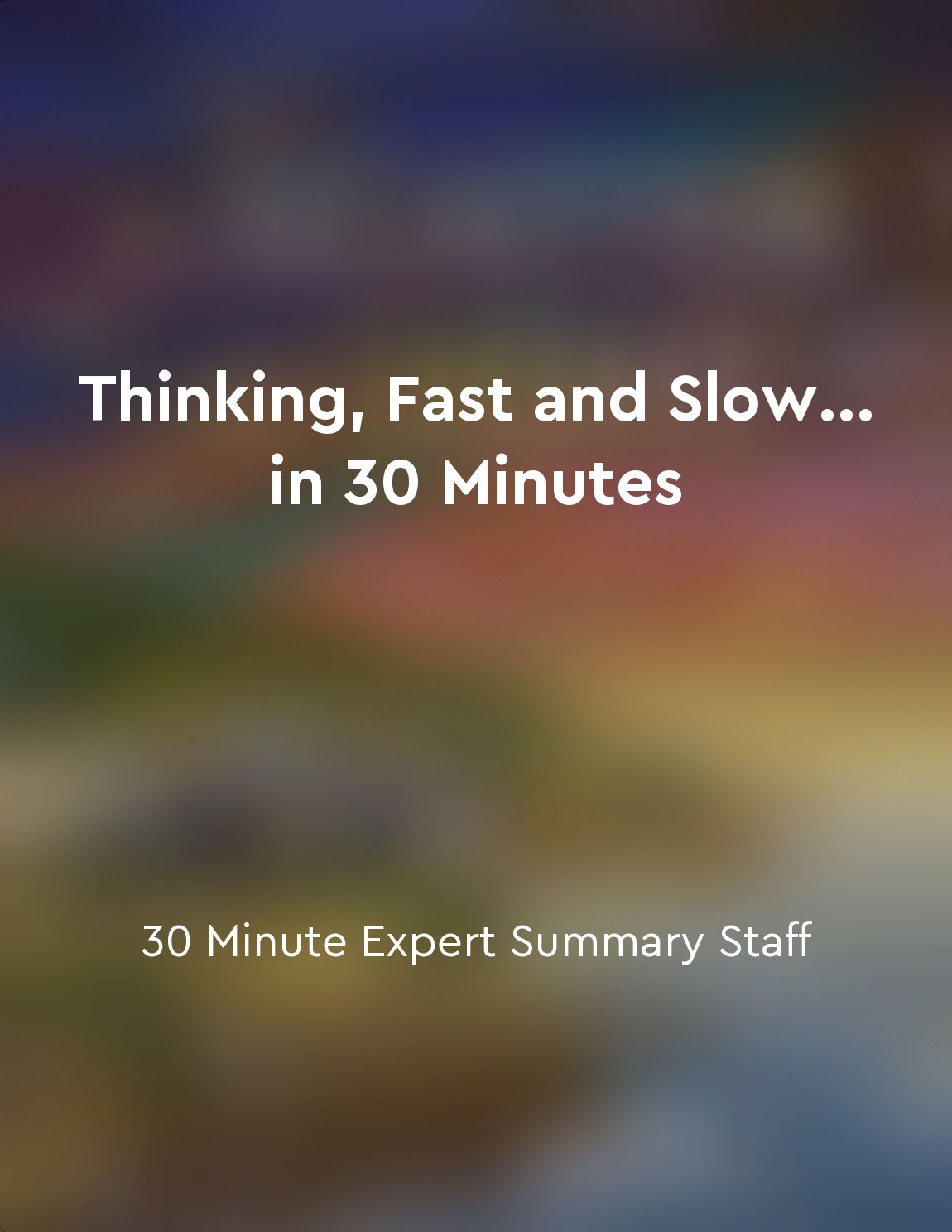Confirmation bias reinforces existing beliefs from "summary" of Thinking, Fast and Slow... in 30 Minutes by 30 Minute Expert Summary Staff
Confirmation bias is a cognitive bias that affects how we process information and form beliefs. Our tendency to seek out information that confirms what we already believe can strengthen our existing beliefs, even if they are incorrect. For example, if we believe that a certain political candidate is the best choice, we may only pay attention to news stories and information that support that belief, while ignoring or dismissing any information that contradicts it. This bias can have far-reaching effects in our decision-making processes, as it can lead us to overlook important information that could challenge or change our beliefs. When we are presented with new information that confirms our existing beliefs, we are more likely to accept it at face value and not critically evaluate its validity. This can create a cycle where our beliefs become more entrenched, making it difficult for us to consider alternative perspectives or change our minds. Confirmation bias can also influence how we interpret ambiguous or uncertain information. When faced with information that could be interpreted in multiple ways, we are more likely to interpret it in a way that aligns with our existing beliefs. This can perpetuate a cycle of reinforcing our existing beliefs, even in the face of conflicting evidence. In order to overcome confirmation bias and challenge our existing beliefs, we must actively seek out information that contradicts our beliefs and engage with alternative perspectives. By critically evaluating new information and being willing to reconsider our beliefs in light of new evidence, we can break free from the cycle of confirmation bias and make more informed decisions.Similar Posts

Following leads
Following leads is like trying to solve a puzzle with missing pieces. Each lead is a potential clue, a thread to follow in the ...

Microaggressions can hinder communication
Microaggressions, which are defined as small actions or comments that may be unintentional but can still be hurtful or offensiv...
Regret aversion affects decisionmaking processes
Regret aversion is a common bias that affects decision-making processes. This bias stems from the fear of making a decision tha...

Take responsibility for your decisions
Taking responsibility for your decisions means acknowledging that you are in control of the choices you make and accepting the ...
Vibrations connect all living beings
The invisible vibrations of energy that permeate the universe are not just a scientific curiosity but the very essence of life ...
Save and invest consistently
Saving and investing consistently is the key to building wealth over time. It's not about trying to time the market or pick the...
Controlling emotions is a necessary skill for successful investing
The ability to control emotions is a crucial aspect of successful investing. When it comes to managing money, rational decision...

Determining the audience's motivations is a crucial step in persuasion
Understanding the motivations of your audience is essential when it comes to persuading them. By knowing what drives them, you ...

Manipulators seek to gain power
Manipulators are individuals who have a strong desire to gain power over others. They will go to great lengths to manipulate si...
Reframe questions
To enhance your critical thinking skills, it is important to learn how to reframe questions. Reframing questions involves looki...

